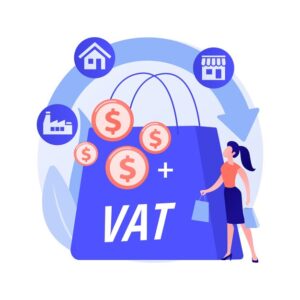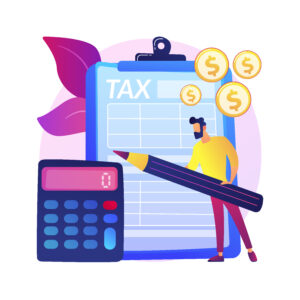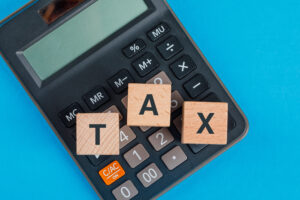Finovate – Your Partner in Digital Asset Compliance and Reporting
A new regulatory era begins with UK Crypto Reporting 2026. Starting on 1 January 2026, the regime introduces detailed reporting duties. Moreover, aligned with OECD standards, the framework enhances global tax transparency for digital assets and tax compliance. Developed by the Organisation for Economic Cooperation and Development (OECD), CARF aims to enhance transparency around cryptoasset transactions for tax purposes.
This regulation affects all RCASPs operating in or through the UK. Therefore, here’s everything you need to know to prepare—summarized and clarified by Finovate’s compliance team.
🔍 What Is CARF?
CARF is a global initiative requiring jurisdictions to collect and automatically exchange information on cryptoasset transactions. As a result, HMRC and other tax authorities will receive annual data from service providers, helping them identify taxable crypto activities.
💼 Who Needs to Report?
Under UK Crypto Reporting 2026, these persons must submit annual user and transaction data:
– Firstly, UK tax residents, or
– Secondly, residents in other countries that have adopted CARF
Who Qualifies as an RCASP?
A business is classified as an RCASP if it:
1. Whether, facilitates or executes cryptoasset transactions on behalf of users,
2. Or, provides a platform or infrastructure for such transactions
E.g. include Crypto exchanges, Brokers and dealers, Wallet providers and marketplaces.
🏢 What Makes a Business UK-Based?
A company qualifies as UK-based when it meets one or more of the following:
a. Tax resident in the UK
b. Incorporated in the UK
c. Managed or controlled from the UK
d. Has a permanent establishment, such as a branch or office, in the UK
Important: If your business meets these criteria in multiple CARF jurisdictions, you only report in one country, following a hierarchy:
1. Tax residence → 2. Place of incorporation → 3. Place of management → 4. Physical presence
🧾 What Needs to Be Reported?
RCASPs will need to submit details on both users and cryptoasset transactions for each calendar year, starting with 2026.
👤 User Information
For Individuals:
1. Full name
2. Date of birth
3. Residential address
4. Country of tax residence
5a. Additionally, For UK users: National Insurance number or Unique Taxpayer Reference (UTR)
5b. In particular, Non-UK users: Tax Identification Number (TIN) and issuing country (if applicable)
For Entities (Companies, Trusts, Partnerships, Charities):
1. Firstly, Legal name
2. Secondly, Business address
3. Thirdly, Company registration number (UK entities)
4. Fourthly, TIN and issuing country (non-UK entities)
5. Lastly, Controlling person information, if required
🔄 Transaction Details
For users in the UK or CARF countries, you must report:
a. Transaction value
b. Cryptoasset type
c. Transaction type (e.g., sale, exchange)
d. Number of units
📅 Reporting Timeline
✅ Start Date for Data Collection: 1 January 2026
📤 First Report Due: 31 May 2027 (covering activity from 1 Jan – 31 Dec 2026)
🗓️ Annual Reporting Deadline (Ongoing): 31 May each year, covering the previous calendar year
🧪 Due Diligence & Verification
Until formal guidelines are issued, RCASPs are required to verify the accuracy of user information under UK Crypto Reporting 2026 guidelines. However, since HMRC has not yet finalized due diligence procedures, RCASPs should remain alert for updates. Consequently, failure to verify data could result in penalties.
💻 How to Report Under UK Crypto Reporting 2026
First thing to remember, to meet UK Crypto Reporting 2026 requirements, RCASPs must register for HMRC’s reporting portal, which will use a standardized XML schema. The service is expected to go live before 31 January 2027, by which point you must also:
a. Register for the reporting service, and
b. Inform your users that their details will be shared with HMRC
⚠️ Penalties for Non-Compliance
Failing to comply may result in penalties of up to £300 per user for following violations:
1. Failing to report
2. Submitting late or incomplete reports
3. Unquestionably, reporting inaccurate or unverified information
Additionally, cryptoasset users could face penalties for not supplying correct tax details such as TINs or if the information is inaccurate.
🧾 Crypto in Self-Assessment
HMRC has also updated the 2024/25 Self-Assessment Tax Return to include dedicated boxes for cryptoasset gains and losses. Furthermore, these Self-Assessment updates align with UK Crypto Reporting 2026, ensuring HMRC has visibility on crypto gains.
📝 Finovate’s Advice on UK Crypto Reporting 2026
1. Start collecting user and transaction data early—even before 2026—to streamline future reporting.
2. Moreover, review and upgrade your KYC/AML procedures to capture all data required under CARF.
3. Additionally, Educate your users on these regulatory changes and their personal obligations to avoid confusion or non-compliance.
4. Prepare your technical systems for XML schema implementation and ensure compatibility ahead of the rollout.
5. Thereupon, stay continuously updated with evolving HMRC guidance on due diligence and reporting mechanisms.
Therefore, planning ahead can save significant time and cost.
🔍 Need Help Getting Compliant?
The earlier you act, the smoother your transition will be. Let Finovate support your business through UK Crypto Reporting 2026 and beyond. Eventually, stay ahead of evolving rules—UK Crypto Reporting 2026 compliance begins now.
📧 Reach out to our compliance team today to schedule a consultation.























